COVID-19 Survey III (2022): Personal Impacts
The survey sample was weighted by gender and academic field to represent the population as closely as possible. The measure of sampling error for questions answered by the full sample is plus or minus 5 percentage points.
In this third round survey on COVID-19, we asked scientists about the ways in which their professional and personal lives have been impacted over the past year. We also asked their opinions on policy issues related to the pandemic. You can see results from previous years’ surveys here: 2020 and 2021.
Question
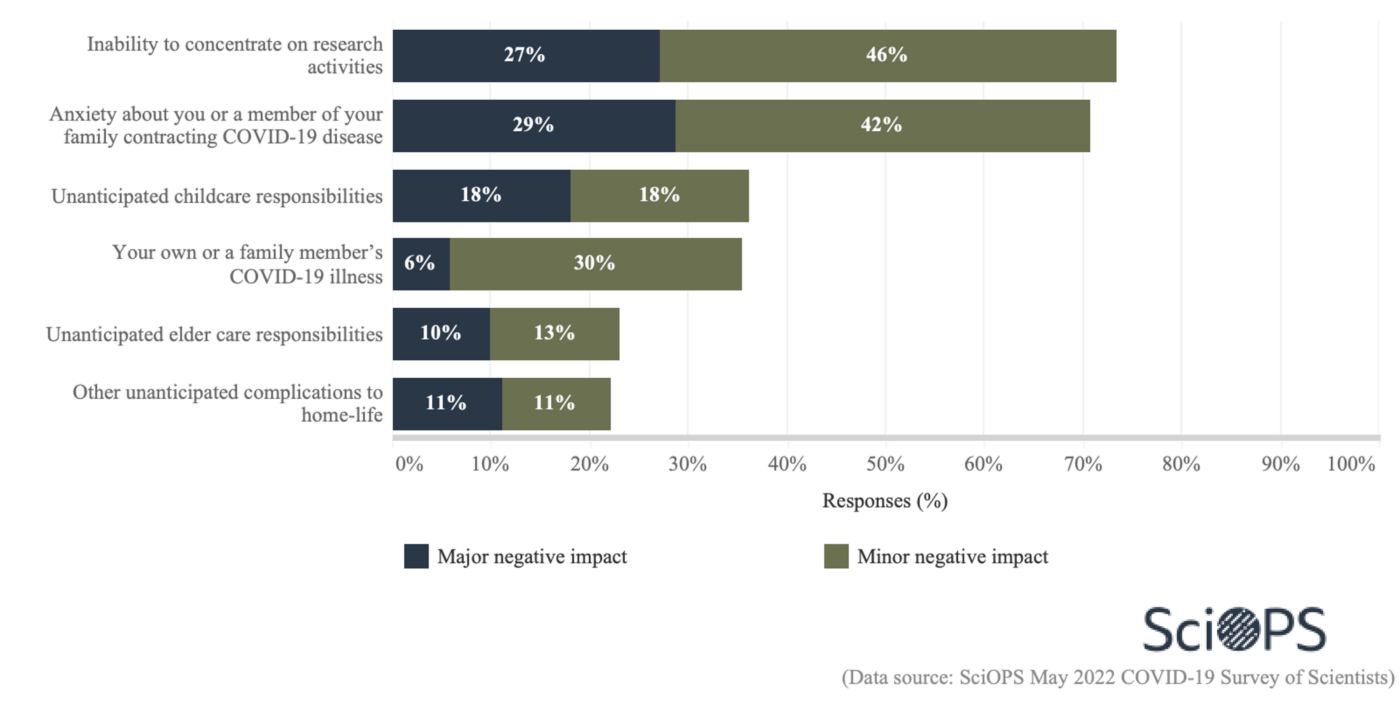
Finding
About 73% of the respondents reported that COVID-19 related policies had negative impacts on their ability to concentrate on research activities.
Approximately 71% report that anxiety about contracting COVID-19 had a negative impact on their work. About 36% report that unanticipated childcare responsibilities negatively impacted their work.
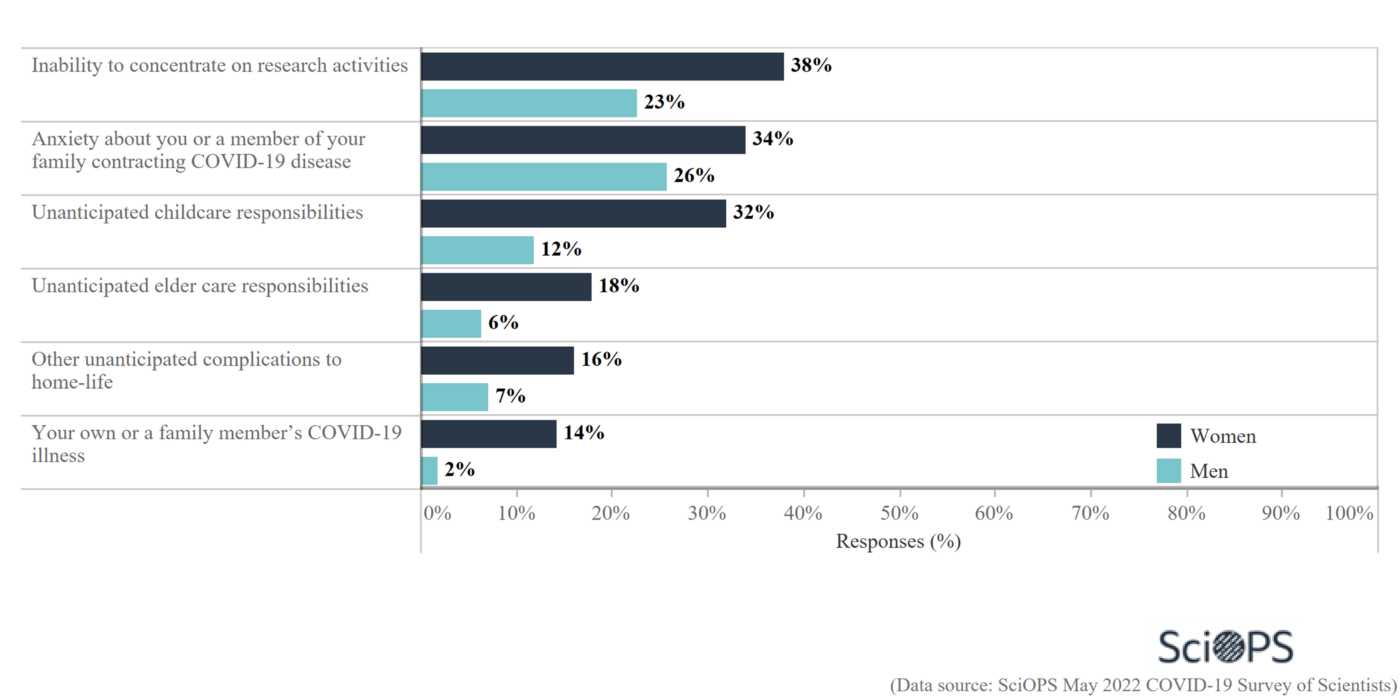
Finding
A higher proportion of women than men report that COVID-19 effects on home life had negative impacts on their research. Approximately 38% of women report major negative impacts on their ability to concentrate, as compared to men.
About 34% of women report that anxiety about contracting COVID-19 had negative impacts on their research, compared to 26% of men.
Question
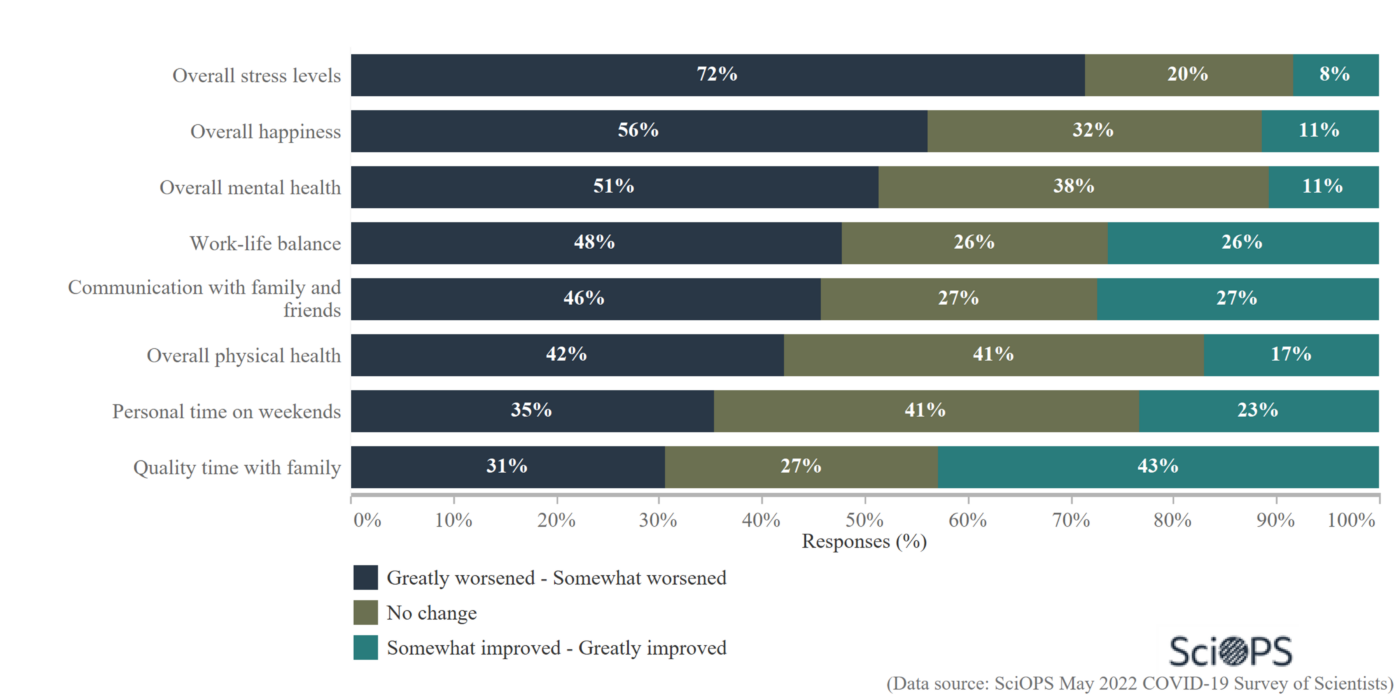
Finding
Due to work-from-home orders and limited in-person work activities, almost three quarters (72%) of the respondents report that their overall stress has worsened, and about 56% reported that their overall happiness has worsened.
Approximately half of the respondents (48%) report that their work-life-balance has worsened, 42% of them report that their physical health has gotten worse, while almost one-third (31%) report that their level of communication with family and friends has worsened.
Question
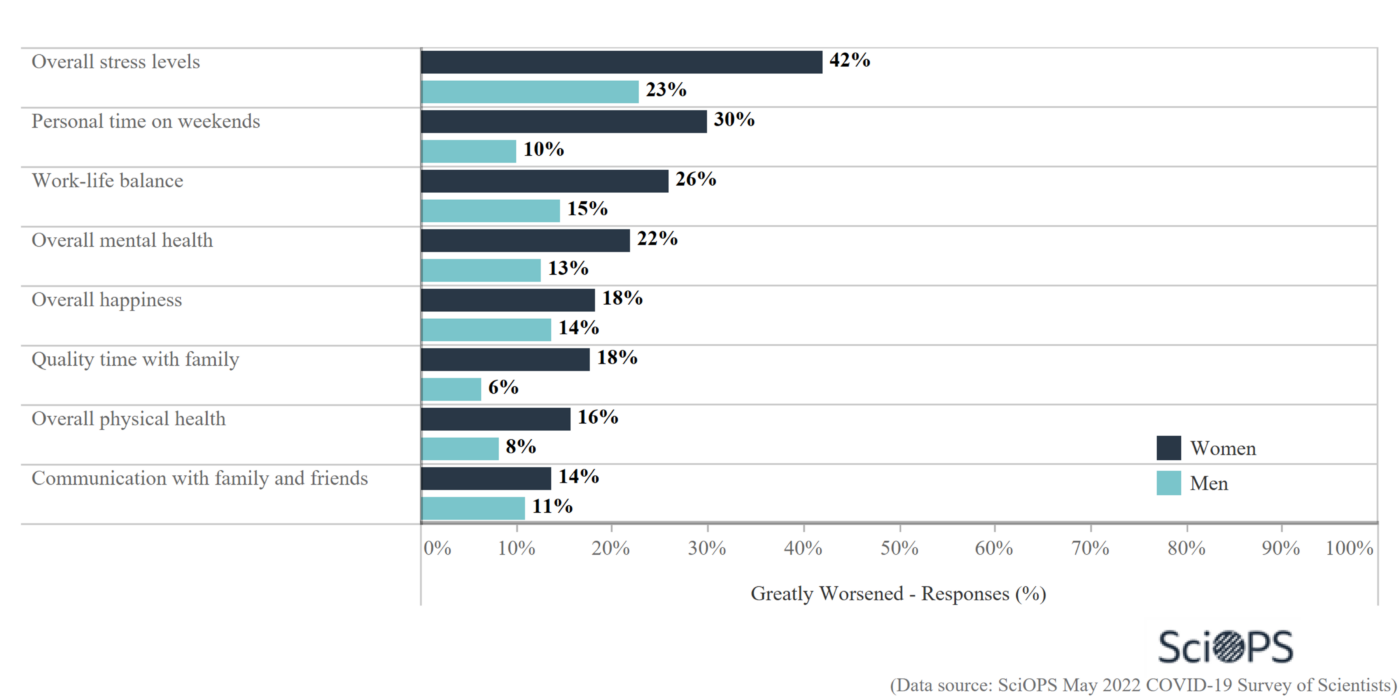
Finding
Both women’s and men’s home-lives have been negatively affected by work-from-home orders and limited in-person work activities. Yet, a higher proportion of women report negative impacts. More than two-fifths of the women (42%) report that their stress levels have greatly worsened and about one-third (30%) say that their amount of personal time on weekends has greatly deteriorated.
Conversely, less than one-quarter of men (23%) indicate that their stress levels greatly worsened since the start of the COVID-19 pandemic and 10% report their amount of personal time on weekends have greatly worsened.
Question
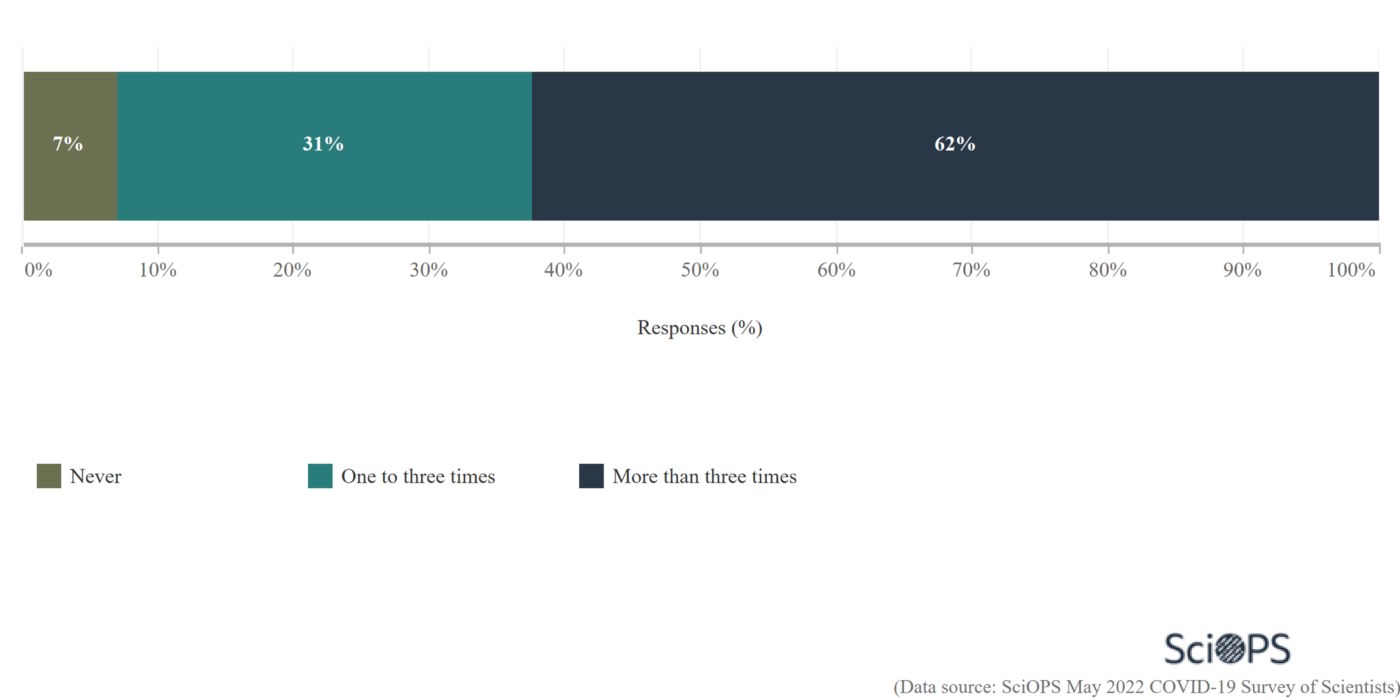
Finding
Since March 2020, most of the respondents (62%) have been tested more than 3 times for COVID-19.
Survey Description
This national survey of scientists and engineers was conducted by Center for Science, Technology and Environmental Policy Studies at Arizona State University. The population for the survey represents a random sample of PhD-level faculty in four fields of science. Three fields biology, biochemistry, and civil and environmental engineering, were collected from 61 randomly selected Carnegie-designated Research Extensive and Intensive (R1) universities in the United States (US). The final sample included contact information for 1,891 scientists. A total of 164 usable responses were obtained, representing an AAPOR response rate (RR4) of 9.06%.
Sample Weighting and Precision: the completed sample was weighted by the inverse of selection probabilities and post-stratified by gender and academic field to represent the population as closely as possible. A conservative measure of sampling error for questions answered by the full sample is plus or minus 5 percentage points. The survey was approved by Institutional Review Boards at Arizona State University and at the University of Illinois at Chicago.
